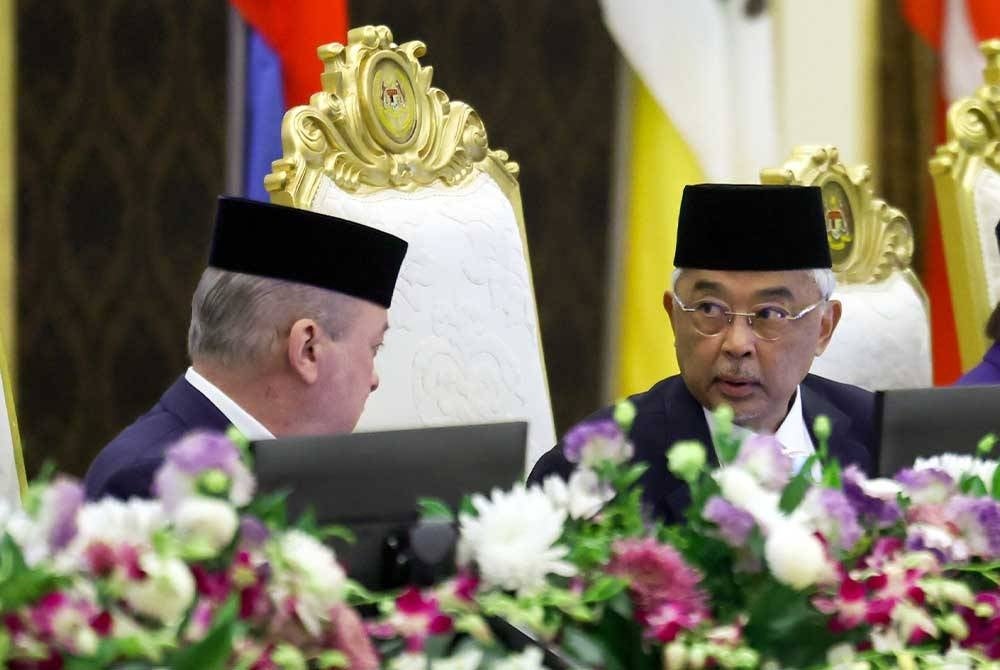Malaysia prepares for the ascension of the new King

SHAH ALAM - As the current five-year term in a unique rotational system to elect the Yang di-Pertuan Agong comes to an end, the country is already talking about the next king who will ascend to the throne
The current Agong, Al-Sultan Abdullah Ri'ayatuddin Al-Mustafa Billah Shah, who ascended to the throne in 2019, is preparing to make way for a new head of state.
Recently, the media reported that Sultan Ibrahim Sultan Iskandar, the next in line to assume the role of Yang di-Pertuan Agong, has openly expressed his readiness to embrace this significant responsibility.
The Agong is chosen by the Malay Rulers through the Conference of Rulers. The process and details of this selection are explicitly outlined in the Third Schedule of the Constitution and the Regulations of the Conference of Rulers.
Upon the conclusion of their term, the Yang di-Pertuan Agong will be followed by another monarch according to the same selection process.
The Conference of Rulers is poised to cast their votes for the new king today, adhering to the established tradition. The new king may be officially crowned by the end of January.
Here are some key aspects of Malaysia's exceptional monarchy system:
What is a rotational monarchy?
Malaysia's rotational monarchy involves the hereditary rulers of nine Malay states. The positions of king, known as the Yang di-Pertuan Agong, and deputy king rotate among these nine rulers, each serving a five-year term. The king resides at the national palace in Kuala Lumpur during their term.
The succession typically follows a predetermined order, suggesting that Johor's Sultan Ibrahim Sultan Iskandar is next in line. Sultan Ibrahim has publicly expressed his readiness for the role and is involved in various business ventures.
Why does Malaysia have a rotational monarchy?
This unique system was established when Malaysia gained independence from British colonial rule in 1957. The country's historic ruling dynasties sought to preserve their status and influence by implementing this rotational arrangement. Before the colonial era, these dynasties ruled independent Malay kingdoms.
The rotational monarchy ensures that each ruler has an equal opportunity to serve as the supreme head of the federation. While predominantly ceremonial, the role of the king comes with specific constitutional functions and privileges.
What distinguishes a king from a sultan?
The king is chosen from among the nine royal rulers, seven of whom are referred to as sultans. The remaining two hold the titles of Raja and Yang di Pertuan Besar. Their authority is primarily limited to their respective states, which includes granting pardons, appointing state chiefs, and acting as the state's head of Islam.
What powers does Malaysia's king possess?
According to the constitution, the king "shall take precedence over all persons in the federation," and his authority surpasses that of individual sultans. His responsibilities encompass the sole discretion to appoint a prime minister and approve requests to dissolve parliament.
The king also ratifies laws and appoints ministers, their deputies, court judges, and other crucial national roles based on the prime minister's recommendations. Once crowned, the king relinquishes the powers associated with his state while retaining religious authority. Engagement in commercial enterprises is prohibited.
How does this system differ from other monarchies?
Unlike traditional monarchies where the crown passes through hereditary succession, Malaysia's rotational monarchy allows for the same ruler to serve as king twice, and a king can also resign or be removed from office by the Conference of Rulers before completing the five-year term.
The five-year reign of the current and 16th Yang di-Pertuan Agong, Al-Sultan Abdullah Ri'ayatuddin Al-Mustafa Billah Shah of Pahang, is scheduled to be completed by the end of January next year.
Sultan Ibrahim was proclaimed the Ruler of Johor on January 23, 2010.
Download Sinar Daily application.Click Here!















